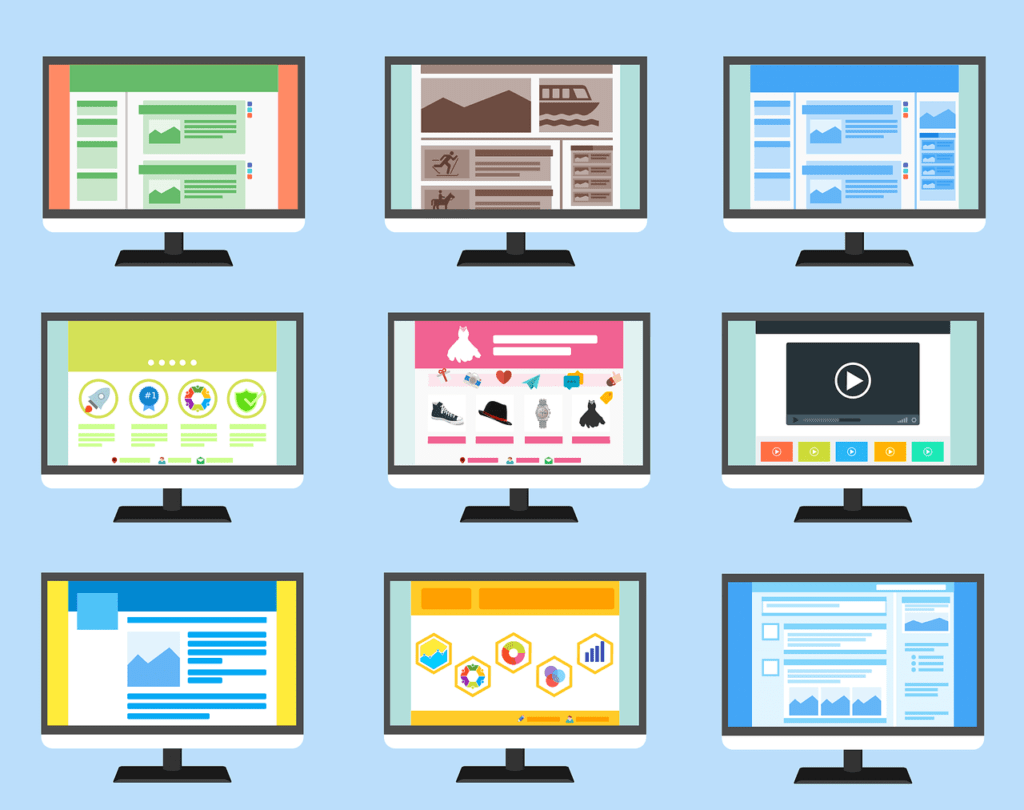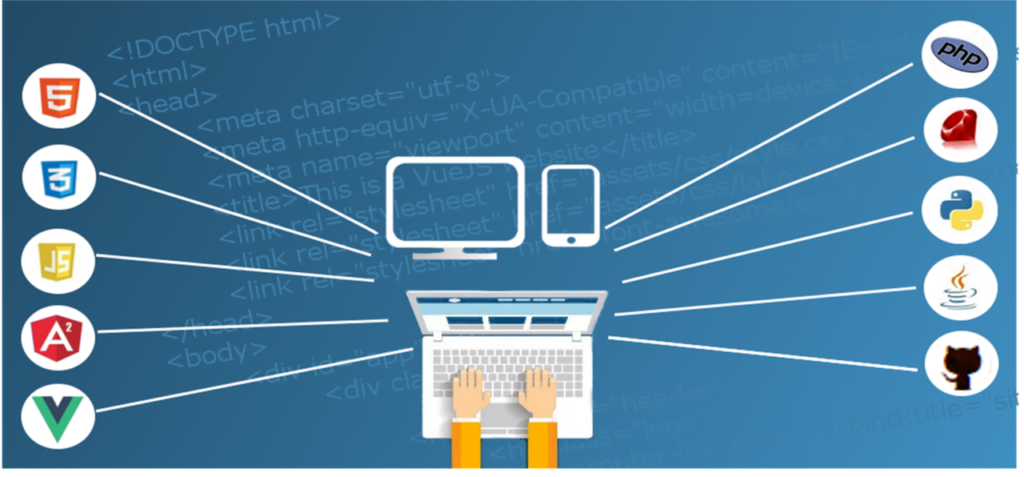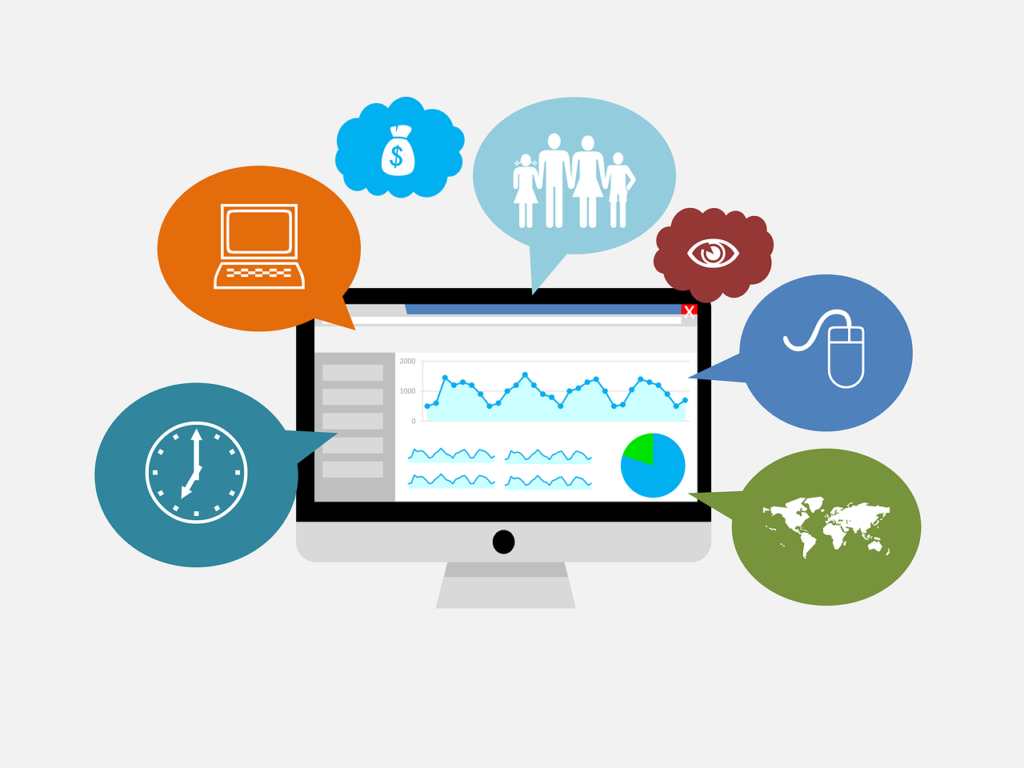Have you ever wondered how small businesses can create stunning websites without any coding knowledge or technical expertise? It may sound impossible, but thanks to the “no-code” revolution, entrepreneurs now have access to powerful tools that allow them to build websites without writing a single line of code. In this article, I will explore the best no-code website builders available for small businesses, empowering them to bring their ideas to life faster and more cost-effectively.
Get professional SEO services from a trusted Swiss agency.
Elevate your brand’s online presence with Once Digital – we’re the internatioal SEO experts who deliver results, not just promises.
With the rise of the no-code movement, the software development landscape has undergone a remarkable transformation. Traditional coding has always been a barrier for non-technical founders, requiring them to rely on expensive developers or learn complex programming languages. Now, with no-code website builders, anyone can create professional websites with ease.
But what exactly is a no-code website builder? It’s a tool that empowers users to create websites without any coding knowledge or experience. These platforms provide a visual interface and drag-and-drop functionality, making it simple to design and customize websites to your liking. Say goodbye to the days of hiring developers or struggling with complicated coding languages.
Get rock-solid web hosting with Hostinger! Enjoy 70% off, blazing speeds, and the reliability you need. Use our referral link to get your deal!
In this article, I will introduce you to some of the top no-code website builders for small businesses, such as Wix, Bubble, and Weebly. I will explore their features, advantages, and disadvantages, helping you select the best fit for your business needs. We will also discuss the benefits of using no-code platforms, including speed of execution, cost-effectiveness, and community support.
So, if you’re ready to unlock the world of no-code website building and take your small business to new heights, join me on this exciting journey.
Key Takeaways:
- No-code website builders empower small businesses to create professional websites without coding knowledge.
- These platforms provide a visual interface and drag-and-drop functionality, simplifying the website creation process.
- Wix, Bubble, and Weebly are popular examples of no-code website builders for small businesses.
- No-code platforms offer advantages such as speed of execution, cost-effectiveness, and community support.
- Despite the benefits, it is important to consider the limitations and address any concerns associated with using no-code builders.
Introducing the No-Code Movement in Software Development
The world of software development has undergone a significant transformation with the emergence of the no-code movement. This revolutionary approach enables individuals without coding skills to create sophisticated applications using intuitive visual interfaces. No longer do entrepreneurs and small businesses need to rely on expensive developers or struggle with complex code. With the power of no-code platforms, anyone can turn their creative ideas into reality.
The Basics of No-Code
No-code platforms provide a user-friendly environment that empowers individuals with little to no technical expertise to build applications. These platforms use drag-and-drop functionalities and visual interfaces, allowing users to design and customize the look and functionality of their applications without writing a single line of code. It eliminates the need to learn programming languages, making software development accessible to a broader audience.
How No-Code Platforms Empower Entrepreneurs
No-code platforms level the playing field for entrepreneurs and small businesses by removing the barrier of technical knowledge. With these platforms, individuals can bring their innovative ideas to life without the need to hire expensive developers or learn complex coding languages. It empowers entrepreneurs to take control of their projects and create professional applications that align with their vision.
The Evolution of No-Code Tools
No-code tools have come a long way in recent years, evolving to offer advanced features and functionality that rival traditional coding methods. These platforms have grown in sophistication, enabling users to build complex and robust applications without any coding skills. The evolution of no-code tools has made it easier than ever for small businesses to create professional websites and applications that meet their unique needs.
The image above illustrates the evolution of no-code tools, showcasing the progression and advancements that have taken place. From basic drag-and-drop interfaces to highly intuitive and feature-rich platforms, the evolution of no-code has broadened the possibilities for entrepreneurs and small businesses, enabling them to build high-quality applications that stand out in the digital landscape.
Defining the No-Code Website Builder
What is a No-Code Website Builder?
A no-code website builder is a tool that allows users to create websites without any coding knowledge or experience. These platforms provide a visual interface and drag-and-drop functionality that simplifies the website creation process.
No longer do small businesses need to rely on hiring expensive web developers or spending hours learning complex coding languages. With a no-code website builder, anyone can create a professional-looking website with ease.
The Visual Interface Advantage
One of the key advantages of using a no-code website builder is the visual interface it provides. With a drag-and-drop editor, users can see exactly how their website will look as they build it.
This visual feedback is invaluable when it comes to customizing the design and layout of the website. Users can make real-time changes and adjustments, ensuring that the website reflects their brand and vision.
The visual interface also makes it easier to create visually appealing and user-friendly websites. Users can easily arrange elements, insert images, and format text, all without having to write a single line of code.
Overall, the visual interface advantage of no-code website builders empowers small businesses to create professional websites that engage their audience and drive results.
The Pioneers of No-Code Website Creation
Several companies have played a significant role in pioneering the no-code website creation movement, making website building accessible to non-technical users. Some of the key pioneers and early adopters of no-code technology include Wix, Bubble, and Weebly.
**Wix** is a popular no-code website builder known for its user-friendly interface and extensive range of templates. It allows small businesses to create professional-looking websites without any coding knowledge. With Wix, users can customize their websites to suit their unique needs and preferences.
**Bubble** is another influential player in the no-code industry. It goes beyond simple website building and allows users to build complex web applications without the need for coding. Bubble offers a visual interface and drag-and-drop functionality that empowers entrepreneurs and small businesses to create sophisticated applications.
**Weebly** is renowned for its seamless integration of e-commerce capabilities with simplicity in design. It is an excellent choice for small businesses looking to build an online store effortlessly. Weebly provides a user-friendly platform that ensures a seamless and professional online shopping experience for customers.
These pioneers of no-code website builders have revolutionized the way small businesses establish their online presence. By eliminating the need for coding knowledge, they have opened doors for entrepreneurs and allowed them to turn their ideas into reality faster and more affordably than ever before.

How No-Code Tools are Leveling the Playing Field
No-code tools have emerged as a game-changer for non-technical founders and small businesses, empowering them to create websites and applications without relying on developers. This shift has dismantled the barrier of coding knowledge, allowing individuals with entrepreneurial spirit to bring their ideas to life with ease and confidence.
Empowering Non-Technical Founders
Gone are the days when launching a website or building an app required coding expertise. No-code tools have made technology accessible to everyone, enabling non-technical founders to take charge and build their digital presence. With user-friendly interfaces and intuitive drag-and-drop functionality, these tools empower individuals to design and customize their websites and applications to suit their unique vision and brand identity.
Whether you’re a passionate blogger, a creative freelancer, or an ambitious startup founder, no-code tools level the playing field by giving you the freedom to create without limits. No longer do you need to rely on external resources; you have the power to shape your digital presence according to your own vision.
Bringing Ideas to Life Faster and Cheaper
No-code tools offer a more efficient and cost-effective solution for small businesses. Traditional development can be time-consuming and expensive, especially for entrepreneurs with limited resources. With no-code tools, you can bypass lengthy development cycles and reduce costs significantly.
These tools provide pre-built templates, ready-to-use modules, and a vast library of design elements, saving you countless hours of coding and design. By leveraging these resources, you can bring your website or application to life much faster, allowing you to focus on what truly matters – growing your business.
No-code tools also minimize the need for expensive developers, making them an ideal choice for startups and small businesses with limited budgets. By eliminating the need for hiring and managing a development team, you can allocate your resources to other crucial aspects of your business, such as marketing, customer acquisition, and product development.
With the combination of speed and cost-effectiveness, no-code tools provide a competitive advantage to small businesses, enabling them to launch their digital presence quickly and start generating value from day one.
Top No-Code Website Builders for Small Business
When it comes to building a professional and functional website without coding knowledge, there are several top-tier no-code website builders available. These platforms empower small businesses to create stunning websites that meet their specific needs and goals. In this section, we will review three leading no-code website builders: Wix, Bubble, and Weebly.
Wix: The User-Friendly Giant
Wix is a powerhouse in the world of no-code website builders, offering a user-friendly interface and a wide range of templates and customization options. With Wix, small business owners can easily create a professional-looking website that showcases their brand and products. The drag-and-drop functionality makes it simple to customize layouts, add media elements, and optimize the website for mobile devices. The plethora of pre-designed templates caters to various industries and aesthetics, giving businesses the freedom to create a unique online presence.
Bubble: Bridging Complexity With Simplicity
Bubble is an innovative no-code platform that allows users to build complex web applications without any coding knowledge. It bridges the gap between complexity and simplicity, making it ideal for entrepreneurs and small businesses with unique requirements. Bubble offers a visual interface with powerful functionality, enabling users to create custom web applications that integrate with external services and databases. With its intuitive features and drag-and-drop builder, Bubble empowers users to bring their ideas to life and develop sophisticated web applications without the need for technical expertise.
Weebly: Combining E-commerce and Simplicity
Weebly is a no-code website builder that combines the simplicity of design with powerful e-commerce capabilities. Small businesses can easily set up an online store and start selling their products with Weebly’s intuitive interface and built-in e-commerce features. Weebly offers a range of customizable templates, allowing businesses to create visually appealing websites that reflect their brand identity. With Weebly’s user-friendly drag-and-drop editor, users can effortlessly add product listings, manage inventory, and process payments, making it an excellent choice for small businesses looking to establish an online presence and drive sales.
With these top no-code website builders, small businesses have access to powerful tools that enable them to create professional and functional websites without the need for coding knowledge. Each platform offers unique features and advantages, allowing businesses to choose the one that best aligns with their specific goals and requirements.
No-Code vs. Low-Code: Selecting the Best Fit for Your Goals
When it comes to building applications without coding, both no-code and low-code platforms offer accessible solutions for businesses. However, it’s important to understand the differences between the two and select the platform that best aligns with your goals and needs.
No-code platforms, as discussed earlier, allow users to create applications without any coding knowledge or experience. They typically provide a visual interface and drag-and-drop functionality, making it easy for even non-technical users to build websites and applications. On the other hand, low-code platforms offer a more advanced set of tools and may require some level of technical knowledge.
The choice between no-code and low-code platforms depends on factors such as the complexity of your project, the level of customization required, and the resources available to you. No-code platforms are ideal for small businesses or individuals who have limited technical expertise but still want to create professional websites quickly. These platforms offer user-friendly interfaces and templates that can be easily customized to meet your specific needs.
In contrast, low-code platforms may be suitable when you require more advanced features and customization options. With low-code platforms, you have greater flexibility to customize your application’s functionality and integrate with other systems. This might be necessary if you have specific business requirements or if you need to build complex applications that go beyond the capabilities of a no-code platform.

| No-Code Platforms | Low-Code Platforms |
|---|---|
| Simple and user-friendly | More advanced and customizable |
| No coding knowledge or experience required | Some level of technical knowledge may be necessary |
| Quicker development and deployment | More flexibility and scalability |
| Limited customization options | Extensive customization possibilities |
| Lower learning curve | Higher learning curve |
Before making a decision, it’s essential to evaluate your project’s requirements and consider the trade-offs between simplicity and flexibility. No-code platforms provide a faster and more accessible way to build websites and applications, while low-code platforms offer greater customization options and scalability. Ultimately, the choice depends on your goals, technical capabilities, and the specific needs of your business.
Advantages of Using No-Code Platforms for Web Development
No-code platforms offer a multitude of benefits for web development, making it an attractive option for small businesses. Whether it’s the need for speed, cost-effectiveness, or the desire for a more inclusive community, no-code platforms have you covered. Let’s delve into the advantages in more detail:
Speed of Execution and Agility
When it comes to web development, time is of the essence. No-code platforms provide the speed and agility necessary to bring your website to life quickly. With their intuitive visual interfaces and drag-and-drop functionality, you can easily design, customize, and update your website without the need for coding. This eliminates the time-consuming process of writing and debugging code, allowing you to focus on delivering a polished product in record time.
Cost-Effectiveness for Small Business
For small businesses, every penny counts. No-code platforms offer a cost-effective solution by eliminating the need to hire expensive developers or invest in coding education. With these platforms, you can become a website creator yourself, saving valuable resources that can be redirected towards other areas of your business. Additionally, since no-code platforms simplify the development process, the overall development costs are significantly reduced.
Inclusivity and Community Support
No-code platforms foster inclusivity by democratizing web development. They empower individuals from various backgrounds and skill levels to participate in creating websites without the need for extensive technical knowledge. Whether you’re an entrepreneur, a designer, or a hobbyist, no-code platforms provide the tools and resources to unleash your creativity and bring your ideas to life. Furthermore, the vibrant community surrounding these platforms offers valuable support through resources, tutorials, and forums. You’ll never feel alone on your web development journey.
By leveraging the benefits of no-code platforms, small businesses can accelerate their web development processes, save on costs, and embrace a more inclusive and supportive community. So why wait? Dive into the world of no-code and unlock your website creation potential today!
Addressing Common Concerns with No-Code Builders
No-code builders have revolutionized the website development process, enabling small businesses to create stunning websites without coding knowledge. However, some common concerns may arise when considering these platforms, such as data security and regulatory compliance. It is vital to address these concerns to ensure a successful and worry-free website-building experience.
Data Security: Data security is a top priority for any business, and it is crucial to choose a no-code platform that prioritizes strong security measures. Look for platforms that offer secure hosting, encryption protocols, and regular backups to protect your data from unauthorized access and ensure business continuity.
Regulatory Compliance: Compliance with industry-specific regulations is essential for businesses operating in sectors such as healthcare, finance, and e-commerce. When selecting a no-code builder, ensure that the platform complies with applicable regulations, such as GDPR for data protection or PCI DSS for secure online payments. This will help you avoid legal repercussions and maintain the trust of your customers.
“No-code builders provide small businesses with a powerful tool to create websites without coding. However, addressing common concerns, such as data security and regulatory compliance, is crucial to maintain a secure and compliant online presence.” – Mark Johnson, Web Development Expert
- Choose a reputable no-code platform: Conduct thorough research and select a well-established no-code builder with a proven track record of security and regulatory compliance.
- Review security features: Look for features such as SSL certificates, secure data transfer protocols, and robust user authentication mechanisms to ensure secure data handling.
- Evaluate data handling practices: Ensure that the platform adheres to best practices for data handling, including encryption, regular backups, and secure storage.
- Read user testimonials and reviews: Check out what other users have to say about the platform’s security measures and their overall experience with data protection.
By addressing concerns related to data security and regulatory compliance, you can confidently leverage the power of no-code builders to create a professional and secure website for your small business. With the right platform and proper precautions, no-code development can enable you to build an online presence and bring your ideas to life without compromising on security and compliance.
| Advantages | Disadvantages |
|---|---|
|
|
Evaluating the Impact of No-Code Tools on Small Business Growth
No-code tools have revolutionized the way small businesses build websites, driving growth and success in the online world. By eliminating the need for coding knowledge, these tools empower entrepreneurs to create professional and visually stunning websites without technical expertise. Let’s examine the impact of no-code tools on small business growth through successful case studies and their ability to overcome technical limitations.
Case Studies: Successful No-Code Websites
Case studies provide valuable insights into the effectiveness of no-code tools for small businesses. They showcase real-world examples where entrepreneurs have leveraged no-code platforms to create successful websites, drive traffic, and increase conversions.
One such case study is Company X, a small e-commerce business that used a popular no-code website builder to create its online store. With intuitive drag-and-drop features, they easily customized their website layout, added compelling product images, and seamlessly integrated payment gateways. As a result, their conversion rate tripled within a few months, leading to substantial revenue growth.
By examining successful case studies like this, small businesses gain valuable insights into the potential of no-code tools and how they can directly impact growth and success.
Surpassing Technical Limitations
No-code tools enable small businesses to surpass technical limitations traditionally associated with website development. These platforms offer a range of tools and resources that allow businesses to build complex websites and applications without coding knowledge.
For instance, advanced features such as database integration, dynamic content creation, and customer relationship management (CRM) can be easily implemented using no-code tools. This eliminates the need for hiring specialized developers or investing in expensive custom coding, saving both time and money.
With no-code tools, small businesses can transform their ideas into reality, overcoming technical barriers and unlocking their online potential.
| Advantages of No-Code Tools | Disadvantages of No-Code Tools |
|---|---|
|
|
The advantages of no-code tools significantly outweigh the disadvantages, making them a viable solution for small businesses looking to grow their online presence without the need for extensive technical knowledge or resources.
Implementing No-Code Solutions in Your Business Strategy
When it comes to incorporating technology into your business strategy, implementing no-code solutions can be a game-changer. No-code tools provide a way for small businesses to develop websites and applications without the need for extensive coding knowledge or hiring expensive developers.
Before diving into the world of no-code, it’s crucial to carefully plan and consider how these solutions can benefit your business. Start by identifying areas where no-code tools can be advantageous, such as website development, process automation, or creating internal tools.
Aligning no-code solutions with your overall business goals is essential. Determine specific objectives, such as improving operational efficiency, enhancing customer experience, or increasing online sales. By clearly defining your goals, you can leverage no-code tools effectively and drive meaningful results.
Choosing the Right No-Code Platform
There are several no-code platforms available, each with its own unique features and capabilities. Here are three popular options:
- Wix: Wix is a user-friendly no-code website builder that offers a wide range of templates and customization options. It’s a great fit for small businesses looking to create professional-looking websites without coding expertise.
- Bubble: Bubble is a powerful no-code platform that allows users to build complex web applications. It bridges the gap between complexity and simplicity, making it ideal for entrepreneurs and small businesses with unique requirements.
- Weebly: Weebly is a no-code website builder that combines simplicity with powerful e-commerce capabilities. It’s an excellent choice for small businesses looking to set up an online store and sell products or services.
The Advantages of Implementing No-Code Solutions
Integrating no-code solutions can provide numerous advantages for your business:
- Speed of Execution and Agility: No-code tools enable businesses to develop websites and applications quickly. With their intuitive interfaces and pre-built components, you can iterate and make changes on the fly, keeping up with the dynamic nature of the digital landscape.
- Cost-Effectiveness: Traditional software development can be costly, especially for small businesses. No-code solutions eliminate the need for hiring expensive developers, significantly reducing development and maintenance costs.
- Inclusivity and Community Support: No-code platforms open the doors to web development for individuals with varying skill levels and backgrounds. The supportive community surrounding these platforms offers resources, tutorials, and assistance, ensuring that everyone can benefit from no-code tools.
While no-code solutions bring many advantages, it’s important to be aware of potential limitations. Customization options may be more limited compared to traditional coding methods, and complex functionalities may require additional workarounds. It’s crucial to evaluate your specific requirements and determine if the available no-code tools can meet your business needs.
By strategically incorporating no-code solutions into your business strategy, you can unlock new capabilities, save time and money, and empower your team to bring ideas to life faster. Embrace the power of no-code and watch your business thrive in the digital landscape.
Conclusion
In conclusion, the rise of no-code website builders has revolutionized the way small businesses create websites. These tools offer a range of benefits for entrepreneurs, allowing them to build stunning websites without coding knowledge or hiring expensive developers. The accessibility of no-code platforms levels the playing field, empowering non-technical founders to bring their ideas to life faster and more cost-effectively than ever before.
By utilizing user-friendly platforms such as Wix, Bubble, and Weebly, small businesses can create professional websites with ease. These pioneers of the no-code movement have made website building accessible to non-technical users, providing them with intuitive visual interfaces and drag-and-drop functionality.
While no-code website builders offer numerous advantages, it is important to address the limitations and concerns associated with using these platforms. Data security and regulatory compliance should be a priority when implementing no-code solutions. However, with robust security measures and adherence to industry-specific regulations, these concerns can be effectively addressed.
Overall, incorporating no-code website builders into small business strategies can significantly enhance growth and success. With benefits including accessibility, cost-effectiveness, and faster development times, no-code tools provide entrepreneurs with the means to create professional websites and drive online success.









